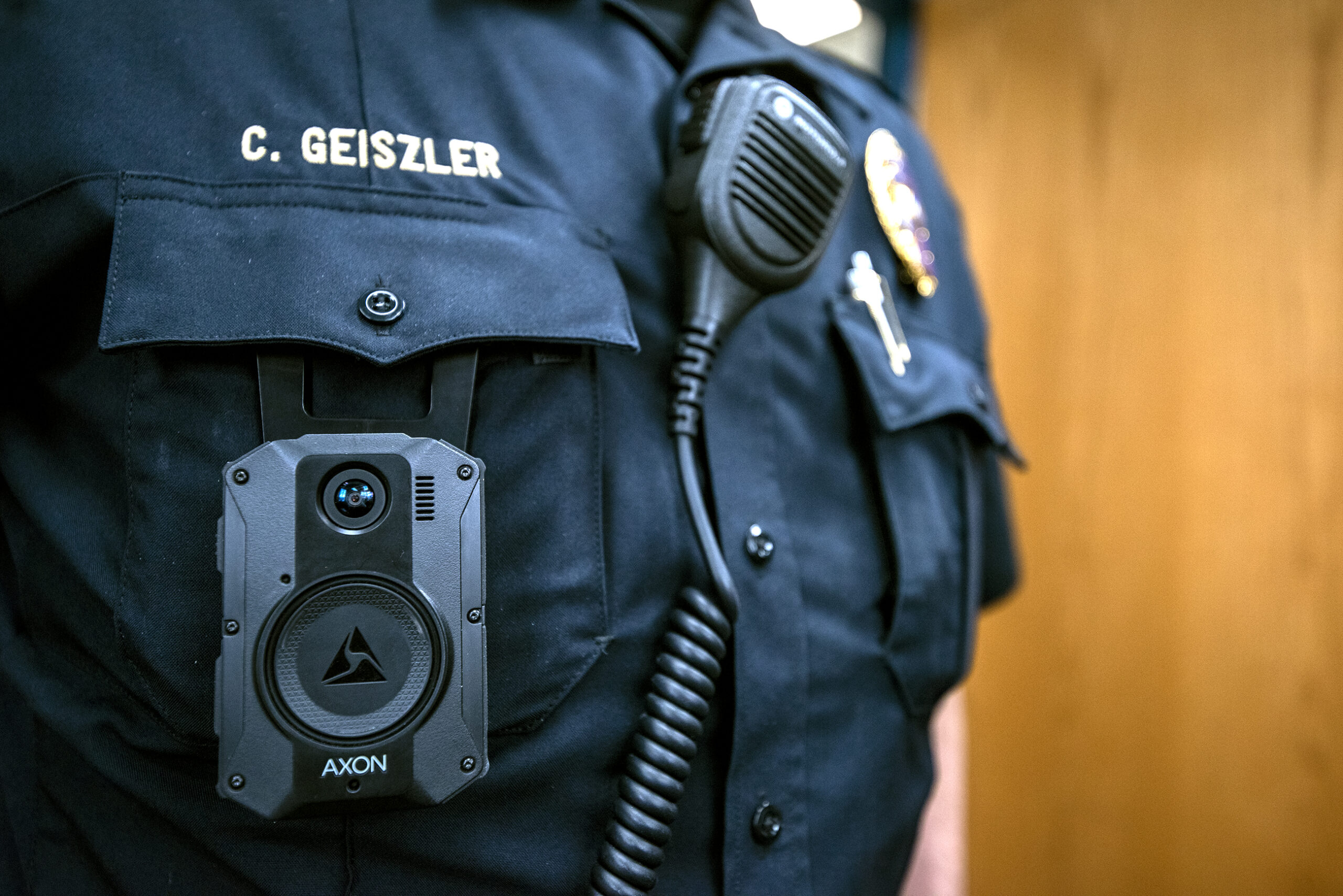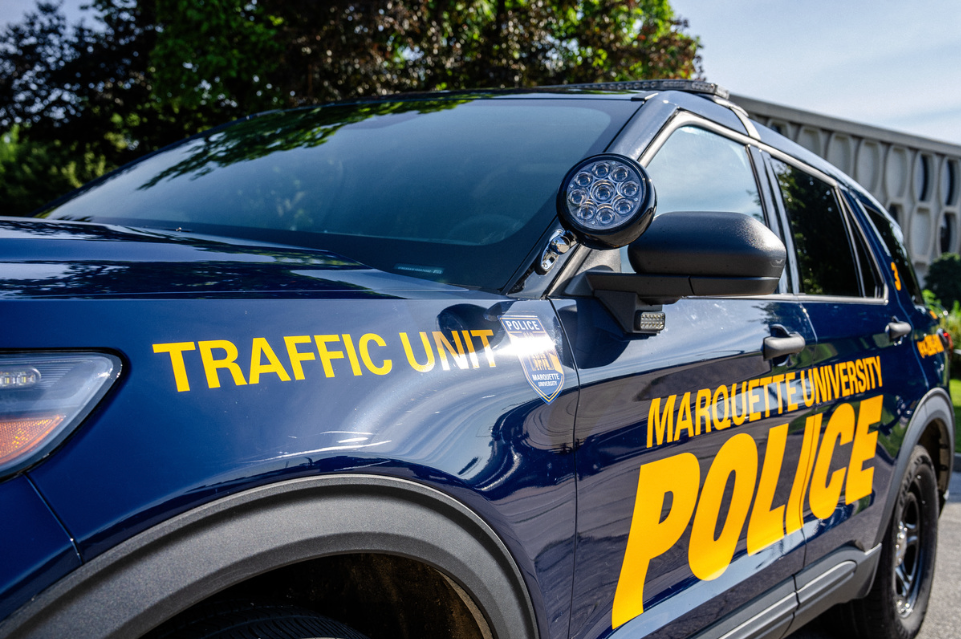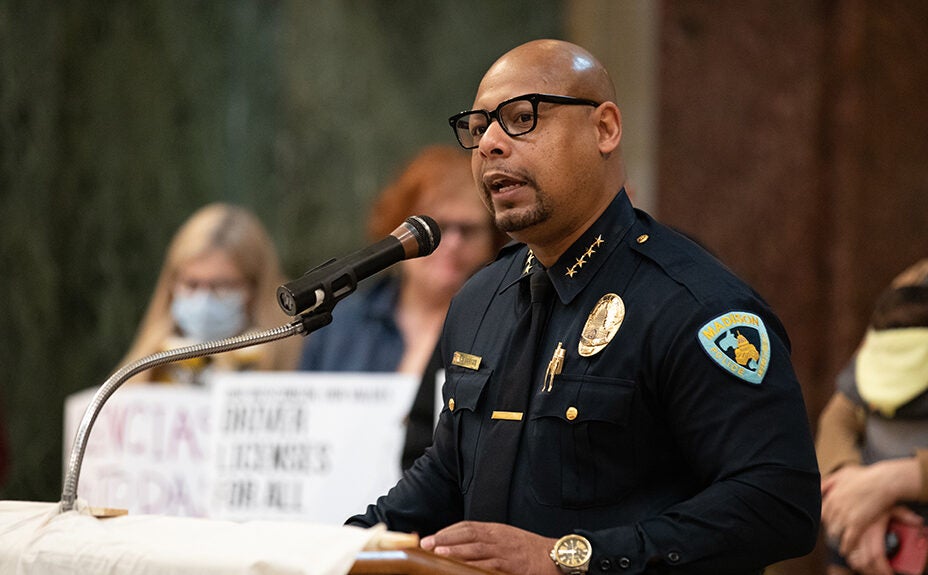After nearly a decade of debate, some Madison police officers will soon be wearing body cameras.
Madison’s Common Council voted 16-4 Tuesday night to authorize a 90-day pilot program to test out the cameras on 48 officers in the city’s North policing district.
Supporters acknowledged research is mixed on whether body-worn cameras will actually decrease police misconduct or improve community relations, but said the devices are just one tool of many to improve transparency.
News with a little more humanity
WPR’s “Wisconsin Today” newsletter keeps you connected to the state you love without feeling overwhelmed. No paywall. No agenda. No corporate filter.
“Body-worn cameras … (are) not a panacea that will guarantee public safety,” said Alder Barbara Harrington-McKinney, who voted for the pilot. “But we can no longer depend on personal cell phones to capture and record what happened.”
Critics worried about financial costs and threats to privacy. They also raised concerns about the cameras being used to over-police and over-prosecute people of color.
“We have to acknowledge that body-worn cameras do contribute to the system of mass criminalization,” said Madison resident Michelle Ellinger Linley, a former Common Council candidate. “The purpose is not to make our communities safer, but to uphold unnecessary surveillance, tracking and record keeping of communities at highest risk for exploitation.”
Although Madison’s squad cars have dashboard and backseat cameras, the only MPD officers with body cameras are those on the SWAT team or motorcycle unit.
That puts Madison in a minority of police departments across the state. More than 60 percent of the Wisconsin law enforcement agencies that responded to a 2020 state Department of Justice survey reported that their officers used body-worn cameras.
And in Dane County, every other law enforcement agency uses body-worn cameras in some form, Madison’s police chief wrote in a memo to the Common Council.
Madison Council members have been discussing the issue since at least 2014. Since then, the matter has been referenced in numerous reports and taken up by multiple city committees.
Most recently, the city’s Police Civilian Oversight Board voted 6-2 on Monday to back the camera pilot. A Police Body-Worn Camera Feasibility Review Committee likewise recommended the camera trial period, but with the caveat that the police department adopt policies recommended by the committee to govern use of the cameras.
Madison City Attorney Mike Haas told alders it’s impossible for his office to make a call determining whether the police department’s pilot policy had “substantially” complied with those recommendations. He described that as a judgment call best left up to the Council.
Madison Police Chief Shon Barnes, who supports the pilot, said differences between the police department’s policy and the recommended policy often came down to logistics. For instance, the committee recommended that cameras “be worn as high on the officer’s body as feasible” to create a wider field of vision, but Barnes said options for camera placement could depend on which brand the city contracts with for the technology.
The debate over body cameras in Madison gained urgency in 2015, when white Madison police officer Matt Kenny fatally shot Tony Robinson Jr., an unarmed biracial 19-year-old, in the stairwell of a Madison apartment building. Dane County District Attorney Ismael Ozanne determined Kenny’s conduct was lawful, after an investigation by Wisconsin’s Division of Criminal Investigation concluded Kenny opened fire after Robinson assaulted the officer.
Officials released dash cam footage from that incident, but Kenny did not have a body camera. The shooting prompted protests throughout the city, with some demonstrators calling on Madison police to start using body cameras.
Alder Marsha Rummel, who first took office in 2007, said she doesn’t believe body cameras will prevent violence. But she hopes they’ll at least increase trust by offering more information.
“I’m not trying to say somehow it’s a preventative tool — I do not believe that for one second,” Rummel said. “But at least we would know what happened in that stairway, and we do not know now.”
Madison alders previously allocated $83,000 for the body camera pilot in the city’s capital budget. Some supporters hope the pilot will eventually pave the way for permanent body camera use across Madison’s police department.
Wisconsin Public Radio, © Copyright 2025, Board of Regents of the University of Wisconsin System and Wisconsin Educational Communications Board.







